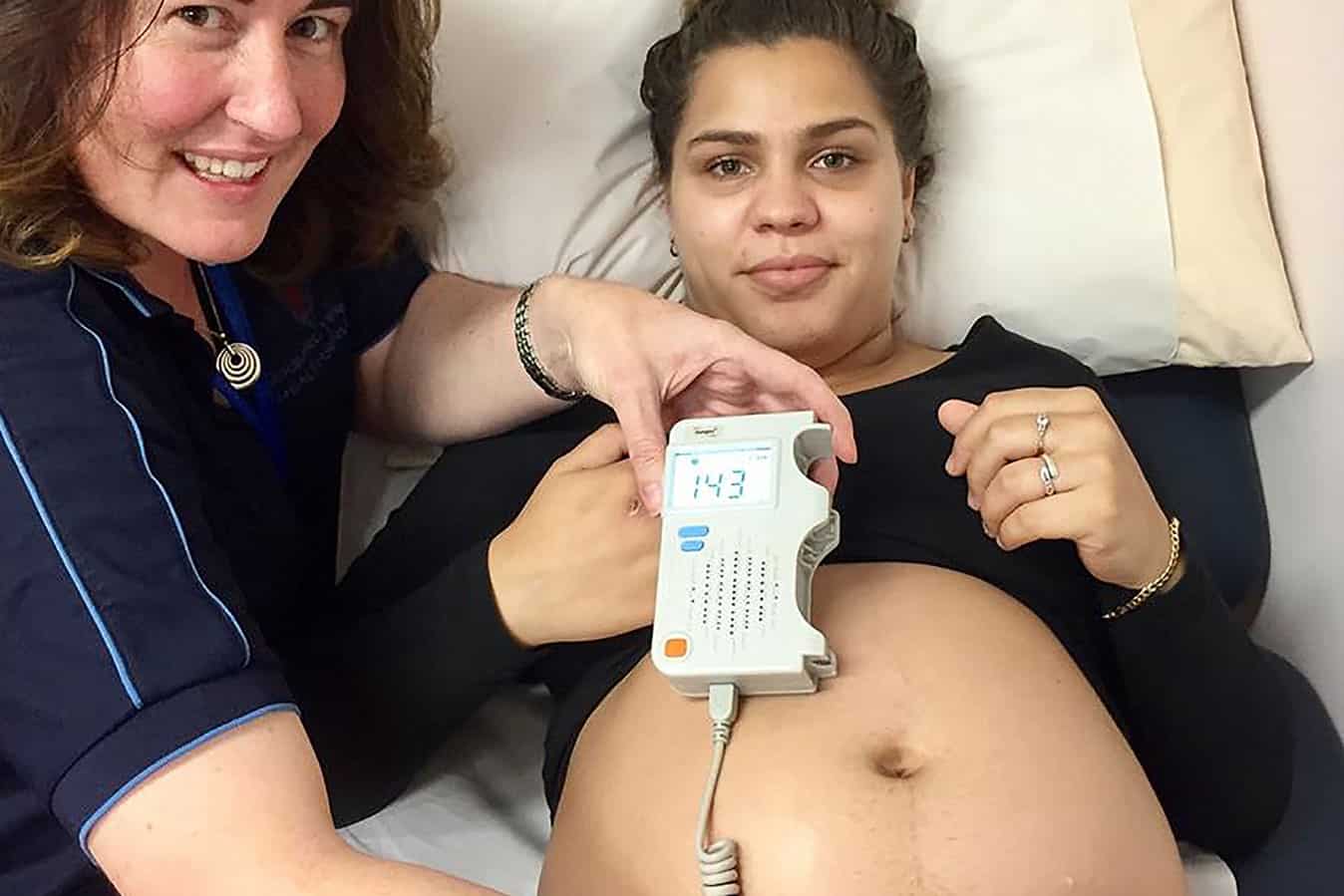Three months at her daughter’s bed side in the burns unit at Western Australia’s Princess Margaret Hospital inspired Liesl Baxter to make the life changing decision to go into nursing.
“I was surrounded by really strong women who were good at decision making.”
A paternalistic upbringing and dominant males in her life, the exposure to strong women was incredibly powerful, says Liesl.
“These were nurses and I admired them and wanted to be like them. I was at a crossroads in my life and needed to make some changes. I went home and started to take responsibility for the decisions in my life.”
With a passion for maternal and child health, Liesl undertook her midwifery education on completing her RN Degree.
She worked for Ramsay Health Care, the King Edward Hospital and Bentleigh
Hospital. Liesl says she took up every opportunity on offer. “They say nursing can take you anywhere. I had the opportunity to work in a breastfeeding centre and I did it. I had the opportunity to work in perinatal loss and deliver stillbirth babies and I did it. I gave immunisations to kids. I went up north to do some remote work.”
It was at university where Liesl ‘fell in love with Aboriginal health’. “I had little insight into the effects of racism and transgenerational trauma and health outcomes.” It was there that she met friend and mentor Gayle Yarren, a Noongar Aboriginal woman from Quairading with Whadjuk and Ballardong heritage.
“Through her friendship and sisterhood I got to learn about her culture within my own context. I walked that journey. I saw how much harder it was for her than me [at university]. I became aware of the health disparities in health outcomes between Indigenous and other Australians. I became concerned what my contribution as a nurse was going to be.”
A lightbulb moment for Liesl came as a graduate midwife in an antenatal clinic.
A woman from far north WA was down for antenatal care in Perth, off country. “She told me she was upset because she was birthing off country. Australia to us is one country, to Aboriginal people it is over 300 countries. She had traversed across several countries. To birth in Perth meant her first born son would lose his birth right. This was a significant life changing course in her life in that her first born son would not birth on country and the loss of that.”
“I asked myself: ‘Is there any way we can make this different? Is there a modern day acceptable way?’ I asked her: ‘Is there someone in your community who could sanction that the first thing your child touches could be the sand from your country.’”
The Aboriginal woman went back and floated the idea which was accepted by the
community, says Liesl. “So she brought back a jar of red dirt from her country for the birth and there was a modern day facilitation of an ancient tradition. That day I realised if I hadn’t fought and advocated for this woman she would have been worse off than when she came in.”
Liesl says she ensures a person’s spiritual, emotional and mental needs are protected.
Cultural safety is all about effective communication. There are a lot of fears, particularly with the Stolen Generation and transgenerational trauma, she says. “So many children were taken. We expected these children to be good parents without being parented themselves and then they faced criticism. Many turned to alcohol and drugs because they don’t have the knowledge and education to make different choices.
“The tentacles [of trauma] are far reaching. When you deal with the fear and trauma then you get good results and outcomes with engagement and uptake.”
An endorsed midwife, Liesl has been Manager of Maternal and Child Health since it opened more than two years ago at Derbarl Yerrigan Health Services, which has been in operation for 40 years. The service prides itself on providing high quality maternity services that are welcoming, culturally safe, responsive and respectful.
“The more immersed in the work at Derbarl I became, the more I could see the ramifications for that population,” says Liesl.
It’s about development of therapeutic relationships and the development of trust, she says. “We provide longer appointments and we really focus on continuity of care to keep that engagement strong.”
Liesls’ partner is a nurse in chronic disease in Aboriginal health and both have a vision and long term goal to make a difference in Aboriginal health. This includes to do more remote work and research, including on the barriers to access.
Liesl has already been involved in several research projects: safe sleeping; improving the uptake of immunisation; birthing on country; and a new screening tool for postnatal depression instead of the EPDS tool through Murdoch University.
Liesl strongly believes in mentorship.
“All my mentors are really strong women who are consumer advocates, women’s advocates, and who fight for justice and humanitarianism. I mentor students because I was mentored by strong women. Giving back is a part of the job.”








